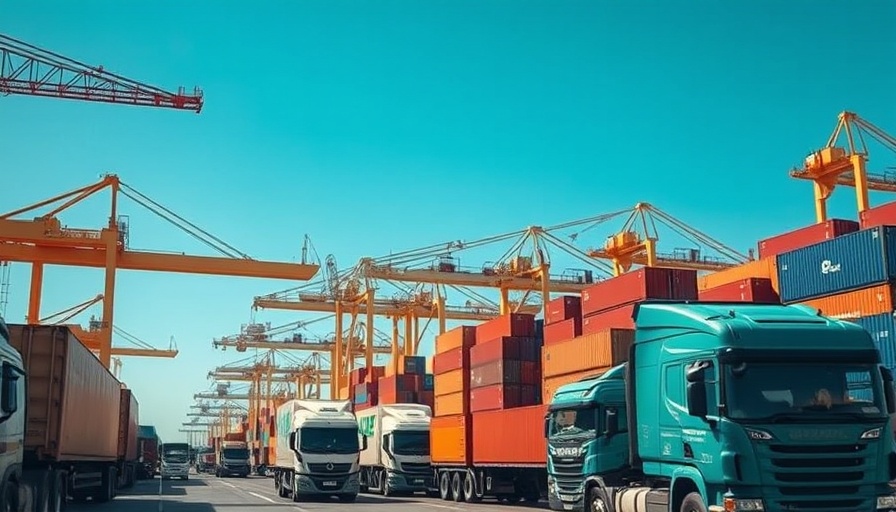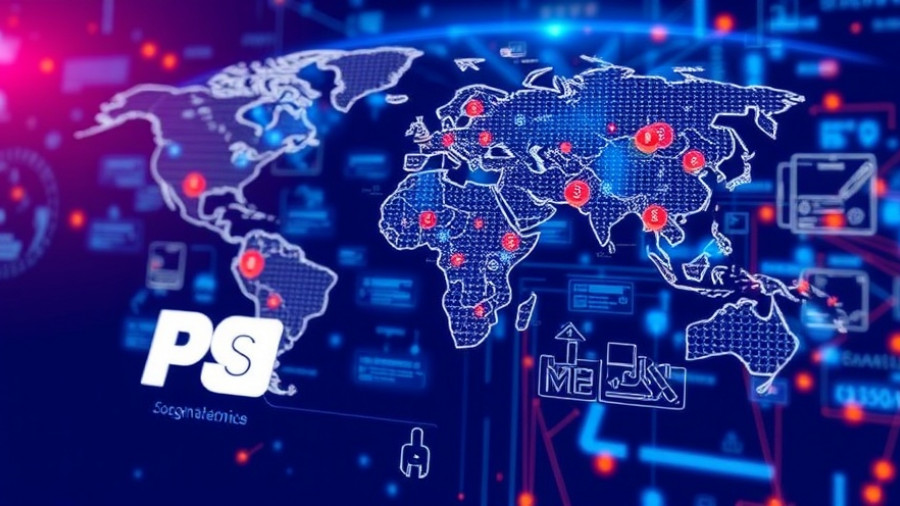
The Future of Logistics in the U.S.: Trends to Watch
As businesses navigate a post-pandemic world, the logistics landscape in the United States is undergoing a dramatic transformation. With global supply chain disruptions still fresh in mind, understanding these trends is essential for professionals, business owners, and marketers aiming to optimize their operations and customer experiences.
Automation: Embracing Technology for Efficiency
One of the most significant trends impacting logistics in 2023 is the increased adoption of automation technologies. As noted by the McKinsey Global Institute, the transportation and warehousing sector has immense potential for automation, which can lead to reduced costs and enhanced operational efficiency. From autonomous vehicles to AI-driven inventory management systems, automation brings remarkable advantages, minimizing human errors and speeding up processes.
Advanced solutions, such as mobile robots in warehouses, are expected to be deployed at larger scales to streamline operations effectively. This not only enhances productivity but also manages labor shortages effectively, addressing a challenge many companies face.Data-Driven Decision Making: Harnessing Big Data
The logistics sector has begun leveraging big data to inform decision-making processes. Utilizing data analytics tools allows businesses to predict consumer demand accurately, adjust inventory levels, and improve operational efficiency. As highlighted in various industry discussions, adopting cloud-based Warehouse Management Systems (WMS) enhances control, allowing logistics managers to make real-time, informed decisions across multiple locations.
Sustainability in Logistics: Meeting Consumer Expectations
With growing concern for environmental sustainability, logistics companies are seeking greener options without sacrificing speed and efficiency. Consumers today are increasingly willing to support brands that prioritize eco-friendly practices; a recent survey indicated that over half of participants would wait longer for their orders if it meant a more sustainable delivery method.
To address this, many logistics providers are exploring alternative fuels, electric trucks, and even electric air transportation solutions. As highlighted by recent innovations in electric aircraft, companies are beginning to invest in sustainable methods, paving the way for greener logistics practices that resonate with environmentally conscious consumers.
Omnichannel Strategies: Integrating Services
As customer expectations evolve, logistics services are expanding to meet multichannel needs. Traditional logistics providers are adapting by offering end-to-end solutions that encompass everything from last-mile delivery to returns management, thereby improving customer satisfaction and retention.
Furthermore, the rise of third-party logistics (3PL) providers enables companies, especially e-commerce businesses, to leverage expertise without investing heavily in their logistics infrastructures. This flexibility in logistics partnerships allows businesses to focus on their core competencies while ensuring alignment with customer demands.
Real-Time Tracking and Transparency: Building Trust
With the consumer demand for transparency at an all-time high, logistics companies are adopting technologies like blockchain to improve tracking and traceability throughout the supply chain. By implementing these technologies, businesses can guarantee that customers have real-time access to their shipment statuses, fostering trust and enhancing overall satisfaction.
Preparing for Uncertain Times: The Resilience Factor
The ongoing geopolitical tensions and unpredictable market environments highlight the importance of resilience in the logistics sector. Companies are reconsidering their supply chain strategies to mitigate risk, including diversifying suppliers and adopting more localized production methods to reduce reliance on global supply chains that can be easily disrupted.
In summary, the logistics industry in the U.S. is evolving to meet new economic realities and consumer expectations through increased automation, data utilization, sustainability efforts, omnichannel integration, enhanced transparency, and resilience building. Companies that adapt to these trends will not only survive but thrive in this challenging environment.
As a business owner or marketer, staying informed on these logistics trends is crucial for enhancing your strategy and ensuring your operations are competitive. Are you ready to embrace the future of logistics?
 Add Row
Add Row  Add
Add 




Write A Comment